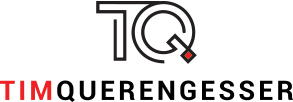I have chosen to use Patreon to help cover the costs of creating my podcast. Here is why.
As you hopefully know, I recently created Walkcast, a podcast that goes walking in cities. Like so many of my non-commercial journalistic ideas, the only limiter is my time and ability to pay my bills. Walkcast is important, though. It is a potential platform for journalism about walking and urbanism that I am passionate about but is not sellable to legacy media because it might be a little too deep-diving or iterative, or a bit too local or pedestrian (oh look, a pun).
I feel this is an important point.
An installation based on walking by the Edmonton Wayfinding Project. Photo by Mack Male.
Most legacy newsrooms have slashed all but essential staff and—as I saw in my most recent job running a daily newspaper—sometimes even those people are gone. Ironically, Paul Godfrey, CEO of Postmedia, said it best: "Are our papers as good as they used to be? No, but they haven’t become unacceptable."
Today we have fewer people writing and broadcasting about more things. Our eyes and ears in mainstream news media have become generalists to keep up; they know the surface of things, at best. This has shrunk the landscape for what's considered important. Which is why issues of walking, car culture, city planning, accessibility and active transportation tend to get passed over. Thankfully, independent journalists and niche websites supporting them are attempting to change this. And yet we do need to pay some very real costs.
This is why I am using Patreon.
I should explain that I am using fundraising tools to pay hard costs for others, not for me. I will not make a cent using Patreon. Instead, I will use money raised to pay for equipment and for a fair wage for other Edmonton journalists and creatives to be part of Walkcast.
And I will ask Edmonton patrons to support a podcast recorded in their city but aimed at an international audience. Think local, broadcast global, as they say (someone surely says this, right?). But why? Well, I see our city as a perfect place to ask questions about urban walking. We are struggling against the dominant car culture here and trying to find new ways to bring back walkability to our streets. We are ground zero for urbanism and the fight to build it.
Once people heard episode one, several offered story ideas and help. I would like to offer them a fair bit of compensation for this work in return. Any money you graciously offer to Walkcast will go directly into it and nothing but it. So please do offer us a few bucks if you can.
-Tim

